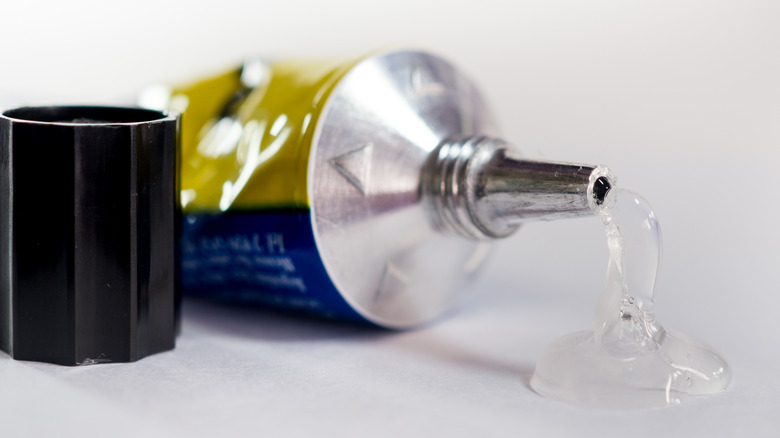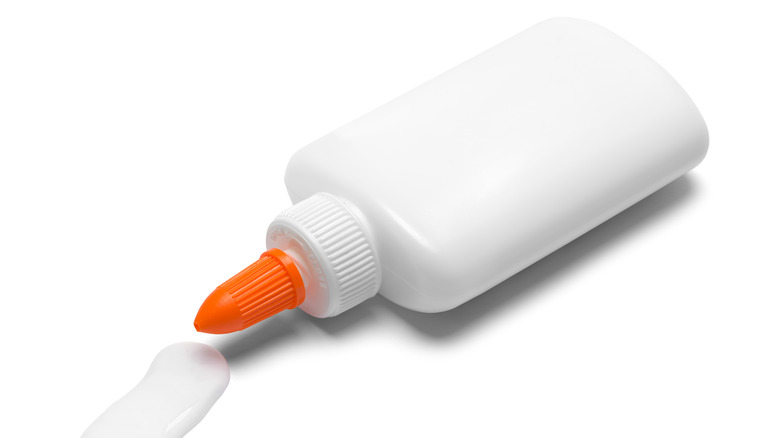The Right Way To Dispose Of Glue
In order to do your best to help the environment, it is important to keep your home as eco-friendly as you can. Properly organizing and recycling materials around the home can be a simple yet effective way to limit unnecessary waste in your house. Using environmentally friendly cleaning products such as baking soda, lemon, and vinegar to combat grime and germs can be a wonderful alternative to chemical-heavy items. In the backyard, having a compost bin for your organic waste can limit the waste from making it to the landfills but also provide nutrient-rich soil if you are growing your own plants and veggies, according to Almanac. Even certain decor like home furnishings can be easily upholstered or repurposed so that you get more use out of it.
However, there are some materials that are used in the home that cannot be recycled or placed in your composter, which might require specific care when it comes to disposing of them. Hazardous materials such as paint, batteries, antifreeze, and cleaning chemicals have no place in your recycling bin, but should also not be tossed in your garbage either. Disposal of these products should be handled with care; otherwise, there might be some negative consequences. If household hazardous waste materials are sent along with your household garbage, the materials could leak into the soil and seep through to contaminate the groundwater. If poured down the sewer or kitchen drain, it might lead to environmental pollution, according to the United States Environmental Protection Agency.
The proper way to dispose of hazardous and non-hazardous glue
When disposing of certain household hazardous waste such as paint and brake fluid, it seems obvious that it should be taken care of in a manner more than simply tossing it in the garbage. Since these chemicals can be toxic, they should be taken to your local waste management facility, more specifically to the household hazardous waste drop so they can be disposed of properly, according to the United States Environmental Protection Agency. However, when it comes to certain kinds of glue found around the home, there might be a different manner in which it should be thrown out.
Some traditional craft glues like Elmer's are non-toxic and made up of biodegradable ingredients. So that means that the contents can be disposed of in your regular household trash or, in some cases, could be safe enough to be placed in your composter, as per Thinking Sustainably. The plastic container that the glue comes in can be added to your recycling bin when it is empty. However, other types of industrial adhesives like super glue, epoxy, or resin should be taken care of differently if you need to toss them out. According to Metro, there are three ways you can get rid of these types of glue. Either use them up or give them away, allow them to dry then throw away in the garbage, or, finally, take them to the hazardous household waste area of your local landfill.

